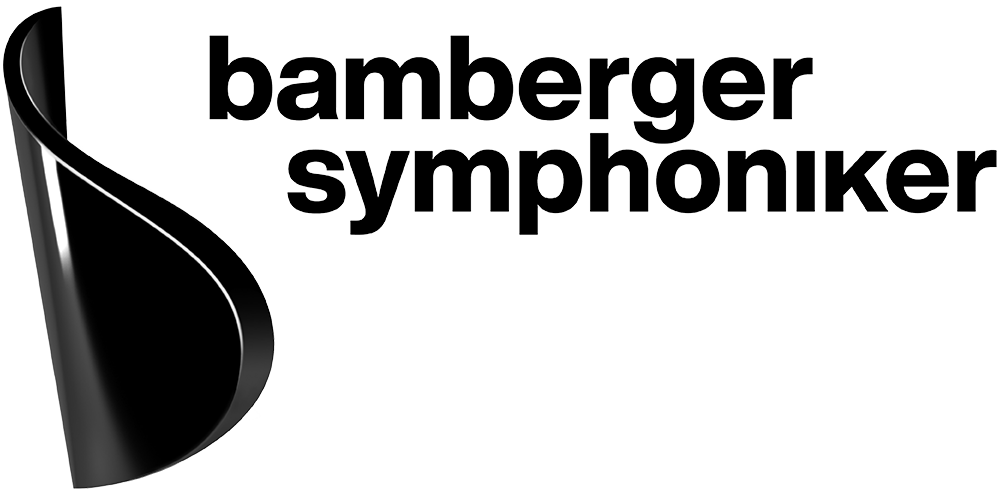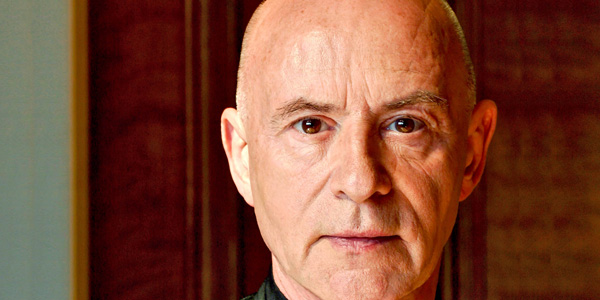
»An old love constantly renewed«
The date is 1 October 1965; a guest performance by the Bamberg Symphony at Bayreuth’s Town Hall. On the podium, Hiroyuki Iwaki, one of the first Asian conductors to appear regularly in Europe, and later, in 1977, the first Japanese conductor of the Vienna Philharmonic. On the programme, an orchestral favourite played a thousand times: the overture to Bedřich Smetana’s »Bartered Bride«, plus Tchaikovsky’s 5th Symphony. The evening seems unexciting on paper, and its central item is also very well known: Robert Schumann’s Piano Concerto in a minor.
But the soloist was a new name: Christoph Eschenbach, a highly promising young pianist, who had just won the Concours Clara Haskil in Lucerne. In Bayreuth, he played as if warming up for his dizzying international career, which hit new highs with appearances in London in 1966 and in the USA in 1969. The newcomer made a lasting impression on the Orchestra, too.
After this »debut on which the heavens smiled«, Eschenbach appeared with the Bamberg Symphony a further nine times, playing Beethoven’s 3rd Concerto under Rafael Frühbeck de Burgos and György Lehel, the 2nd under Eliahu Inbal, and Hans Werner Henze’s Piano Concerto under Michael Gielen. Würzburg’s Mozart Festival brought a mini-cycle of Mozart concertos under Moshe Atzmon in the Kaisersaal: No.19 in 1976, No.27 in 1979. But in between, in 1977, Christoph Eschenbach was both conductor and soloist. Besides the Piano Concerto No.23, they also performed Symphonies Nos.34 and 35 (»Haffner«).
»The transition was quite natural«, remembers Eschenbach. »And the Orchestra has always been sympathetic to my wishes.« He had already conducted in 1972 in Hamburg. Since then he has approached this work with the utmost seriousness, concentrating on it ever more. He has held many permanent posts: from 1979 to 1981, Eschenbach was General Music Director of the Rhineland-Palatinate State Philharmonic in Ludwigshafen, and from 1982 to 1985 Chief Conductor of the Zurich Tonhalle Orchestra. In 1988 he went to the Houston Symphony Orchestra, staying eleven years; he remains its Honorary Conductor today. From 1995 to 2003 he was Director of the Ravinia Festival, the Chicago Symphony Orchestra’s summer residency. From 1998 to 2004 he directed the NDR Symphony Orchestra; in addition, from 1999 to 2002 he was Artistic Director of the Schleswig-Holstein Music Festival. Next, he took the top post at the Philadelphia Orchestra from 2003 to 2008, holding the same position at the Orchestre de Paris from 2000 until 2010.
Christoph Eschenbach has also conducted many operas, but he has repeatedly returned to Upper Franconia, also joining the Bambergers on tour. »I wanted to learn new repertoire, consolidate existing works, or just perform them with these wonderful musicians – some good always came of it«, is Eschenbach’s pragmatic take on what is obviously a love-affair. Not a conductor for authoritarian gestures, here he uses soft power get his way. There have been Russian and late-Romantic German phases, and repeated performances of Mozart, Bruckner and Mahler. »The Bambergers know how to make that big, full, unfailingly warm sound, but they also have a genial, lively, beautifully clear way with the Viennese Classics.« He has fond memories of Schumann and Brahms cycles, and sporadic returns to the keyboard, usually in Mozart.
Together they have visited Austria, Italy and the Benelux countries, travelled to the Baltic with Gidon Kremer, to the Canaries, Oman, the USA and on to Japan and South America, plus constant travels within Germany. And amidst all this, I asked the Honorary Conductor, has anything fallen by the wayside? »We have enjoyed many lovely performances and experiences. If we hadn’t travelled so much, we’d surely have developed more modern and contemporary repertoire together. I remember Lutosławski and Shostakovich, Ruzicka and last but not least Avner Dorman with the percussionist Martin Grubinger. Because that was and remains important to me. On the other hand, I also enjoy this orchestra’s generous yet refined sound in conventional repertoire.«
52 years after his debut as piano soloist, today Christoph Eschenbach appears with the Bamberg Symphony once again – this time conducting, as he has for so long now – and on this same day, 20th February 2017, he also celebrates his 77th birthday. The venue is the McCallum Theatre in the Californian desert city of Palm Springs, halfway between Los Angeles and Las Vegas, all too often derided as the haunt of rich retirees. It’s the last stop in a nearly three-week US tour, taking the Orchestra to nine locations in four states, with highlights in New York’s Carnegie Hall, the first appearance there since 1983, greeted by prolonged applause, and in Miami and Los Angeles.
They’ve been through a blizzard, and rain storms on a far from sun-drenched West Coast. It’s the last outing for one of two touring programmes, Mozart’s »Don Giovanni« overture, Mendelssohn’s Violin Concerto with the Taiwanese-Australian soloist Ray Chen, and Beethoven’s 3rd Symphony. The tour’s stock encore is by Beethoven too, another overture, to the ballet »The Creatures of Prometheus«. Yet that’s not the end of proceedings. A final serenade honours the man of the hour, the Eroica theme combined with »Happy Birthday«, arranged by trumpet soloist Lutz Randow. Then Ray Chen, still in concert garb, wheels in the birthday cake. Visibly touched, Christoph Eschenbach, who has thoroughly enjoyed the tour, speaks from the heart: »Every evening, you really have rediscovered these works anew. That makes them always compelling, always exciting, and I am very, very grateful to you.«
This isn’t mere politesse. Christoph Eschenbach is no phrasemonger, would far rather stay silent, and means what he says. »I immediately felt right with this Orchestra, I still remember that; there has always been a friendly atmosphere here«, he says later, reminiscing about that first concert. »The players – and in the meantime I’ve been through a few generations, in over 165 concerts – are always open-minded and curious, and the positive spirit which I felt from the beginning here continues to be passed on, miraculously. This is a musician’s orchestra, one that takes risks, too; making music with it never descends to routine. We’ve constantly renewed ourselves with fresh repertoire, tried out new things, revisited much-loved pieces. It’s always wonderful to come back to Bamberg, and then set off from here on more or less extended detours. Also, we very often perform in other venues, sometimes new ones, so we never get bored, and we’re more than happy to leave our comfort zone.«
As has been evident on this latest US trip. The itinerary started on the East Coast and took in the South and West Coast, with six flights and even more coach journeys. Everything has gone as it always does: the 120-strong band is a well-oiled touring squad. From this season, the Bambergers have a new Principal Conductor, only their fifth, the Czech Jakub Hrůša, 35 years old but nonetheless already causing a furore in the music world. In the current season, as it happens, he can only spare six weeks for the Orchestra. That will change, and this tour was agreed long ago: with Christoph Eschenbach, who since 2016 has been second Honorary Conductor, alongside Herbert Blomstedt. And with good reason.
The warm-up concert in New Brunswick, New Jersey, opens with Mozart’s dense yet highly structured »Don Giovanni« Overture, and after the interval the main course is Gustav Mahler’s 5th Symphony. It’s like an old-fashioned family heirloom, a beautifully polished silver tray. The audience is completely caught up in it, as Eschenbach sets the Bohemian harmonies pealing, the horns whooping, the clarinets trilling. Despite the former cinema’s somewhat boxy acoustic, the work sounds warm, alert, affecting. The Bambergers know how to achieve this, and not only because they recently completed a brilliant Mahler cycle on CD under the outgoing Chief Conductor Jonathan Nott: it’s in their DNA.
24 hours later, in New York, a royal reception from high society. On 57th Street, people take selfies in front of the Bamberg Symphony billboard; Carnegie Hall’s red-white-and-gold semicircle of 2,800 seats is almost full. They last played here under Eugen Jochum, in Bruckner’s Eighth, after which it was always Avery Fisher Hall at Lincoln Center, now Geffen Hall. »It’s like coming home«, says one player, and after the rehearsal everyone’s happy. It sounds so familiar, so clear, although you can hear the subway and the fire truck sirens, and the stage is like a spa bandstand, with basic, makeshift risers. Yet there’s a real aura here. And a really attentive audience tonight. The Mahler builds into a dense yet fractured psychological portrait, never maudlin, tightly disciplined even in the usually melting Adagietto.
One can sense a relaxed touring routine, but also this orchestra’s subtle alertness, its collective synergy. A thoroughly unexcitable interpretation, free of extremes. Eschenbach is ever-present, but also generous; the players reward him with living inflections. And two days later, they play with the same dedication at Florida’s sunny Daytona Beach, in the Peabody Auditorium. The 2500-seat hall’s acoustic is direct and honest. Just right for the Eroica, enjoying its first outing on this tour. Christoph Eschenbach leads with a fine blend of pathos and svelteness, a brilliant Eroica richly redolent of a bygone Europe. The funeral march reveals vast depths, a sombre obstinacy, but there’s also major-key radiance in the outer movements, sinewy tautness, a flexing of instrumental muscles. It goes down well, and as the encore the Prometheus Overture even raises a laugh.
Remarkable, how alert and relaxed the Bamberg players are – touring is no sweat for them. Every evening, without fail, they give their best. »Breathtaking and brilliant«, is the enthusiastic verdict of Miami’s local press on the Bambergers, reserving special praise for the close, always palpable unity between Eschenbach and the Orchestra.
Only now does Christoph Eschenbach take a first look at the next date with »his« Bambergers, on 16th December, back home, in the Concert Hall on the river Regnitz. The programme consists of two Mendelssohn Symphonies, Nos.4 and 5, as well as the 1st Cello Concerto by Camille Saint-Saëns. The soloist is the young Spaniard, Pablo Ferrandez. That too has been a constant throughout this decades-long musical marriage: renewal through the next generation of players.
Manuel Brug


